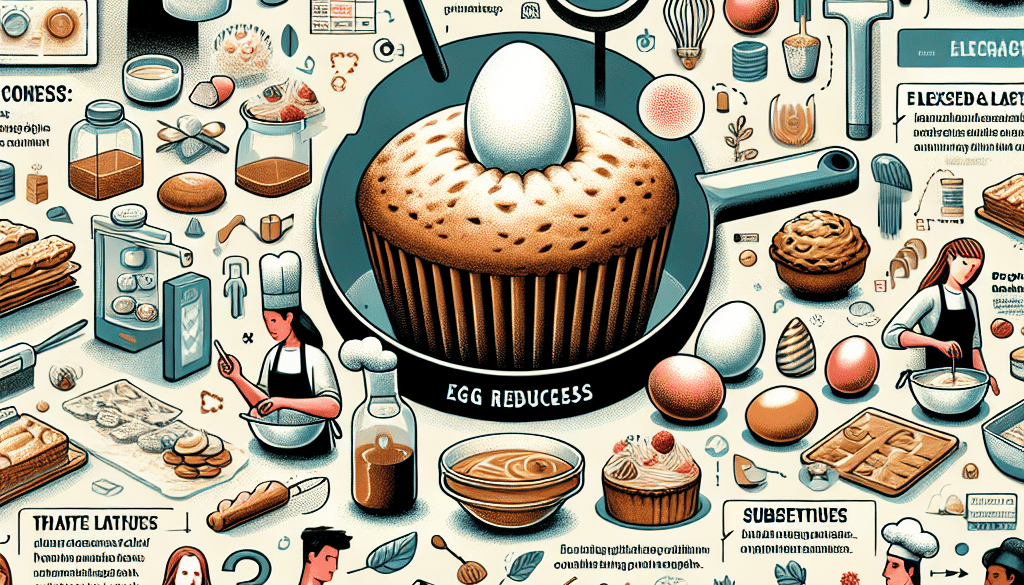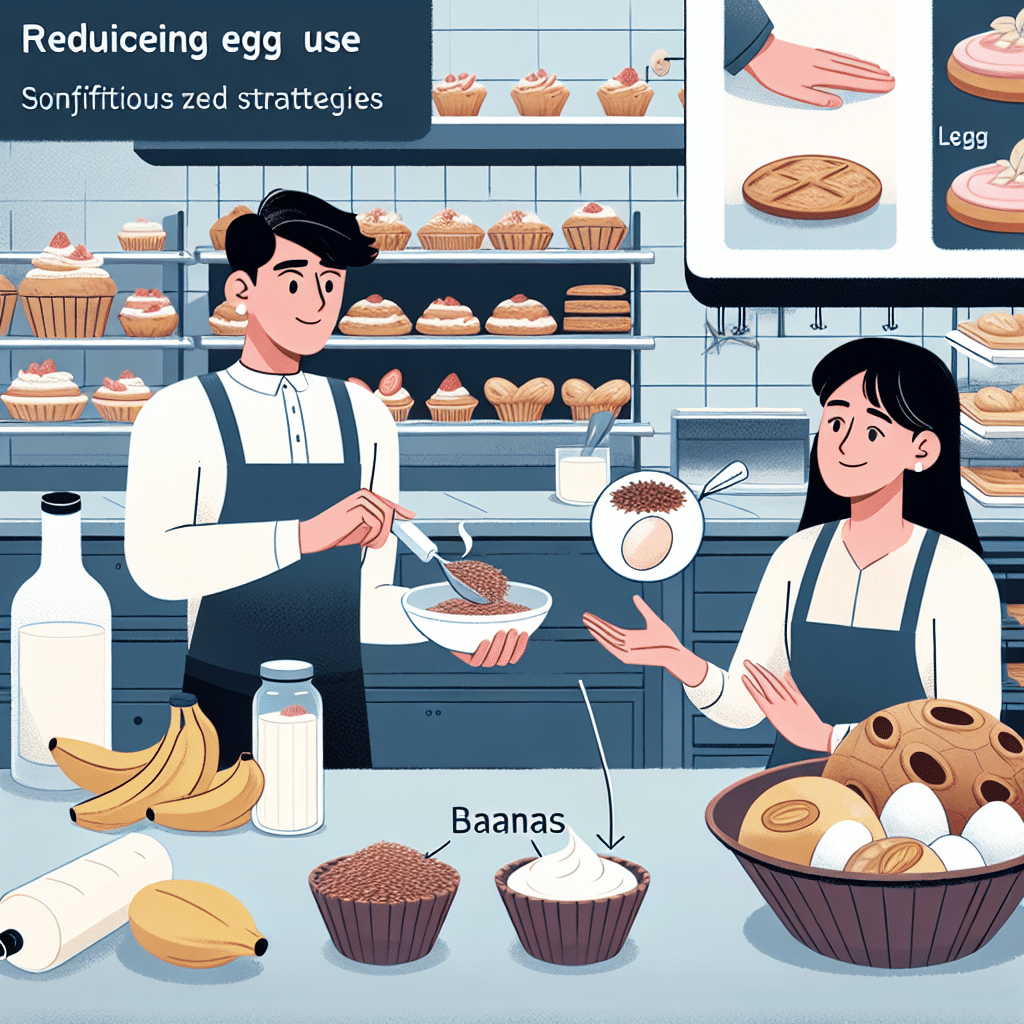Egg Reduction in Bakery: Challenges and Strategies
-
Table of Contents
- Egg Reduction in Bakery: Navigating Challenges with Innovative Strategies
- Understanding the Role of Eggs in Baking
- Challenges of Reducing Eggs in Bakery Products
- Strategies for Successful Egg Reduction
- Case Studies and Examples
- Statistics and Market Trends
- Conclusion: Balancing Tradition and Innovation
- ETChem’s Protein Products: Enhancing Egg-Free Baking
Egg Reduction in Bakery: Navigating Challenges with Innovative Strategies
The bakery industry is constantly evolving, and one of the significant trends in recent years has been the reduction of egg usage in baked goods. This shift is driven by various factors, including the rise in veganism, egg allergies, health concerns, and the environmental impact of egg production. However, reducing or eliminating eggs from bakery products poses several challenges, as eggs play a crucial role in texture, structure, and flavor. This article explores the hurdles faced by bakers and the strategies employed to overcome them, while maintaining the quality and appeal of their products.
Understanding the Role of Eggs in Baking
Eggs are a staple ingredient in baking, serving multiple functions:
- Leavening: Eggs help baked goods rise and become light and fluffy.
- Binding: They act as a glue, holding ingredients together.
- Moisture: Eggs contribute to the moisture content of baked goods.
- Emulsification: They help in mixing fats and liquids that would otherwise separate.
- Flavor and Color: Eggs enhance the taste and give a golden-brown hue to crusts.
Challenges of Reducing Eggs in Bakery Products
When bakers consider reducing eggs in their recipes, they face several challenges:
- Texture and Volume: Achieving the same fluffiness and height without eggs can be difficult.
- Consistency: Eggs contribute to the uniform texture of baked goods, which can be hard to replicate.
- Shelf Life: Eggs can act as preservatives, so removing them may reduce a product’s shelf life.
- Consumer Expectations: Customers have specific expectations for taste and texture that can be altered when eggs are reduced.
Strategies for Successful Egg Reduction
Bakers have developed several strategies to reduce egg content without compromising on quality:
- Plant-Based Alternatives: Ingredients like applesauce, mashed bananas, and flaxseeds can mimic the moisture and binding properties of eggs.
- Starches and Gums: Tapioca starch, xanthan gum, and guar gum can help maintain texture and structure.
- Protein Substitutes: Soy, pea, and whey proteins can provide the structure that eggs would normally give.
- Commercial Replacers: There are many commercial egg replacers available that are formulated to perform like eggs in baking.
Case Studies and Examples
Several bakeries and companies have successfully reduced egg content in their products:
- A well-known vegan bakery chain has replaced eggs with a blend of starches and plant-based proteins, resulting in cakes and cookies that are indistinguishable from their traditional counterparts.
- A large-scale manufacturer of muffins has adopted a commercial egg replacer, which has allowed them to cater to vegan and allergic consumers without sacrificing taste or texture.
Statistics and Market Trends
The demand for egg-free bakery items is on the rise. According to market research, the global egg replacement ingredient market size was valued at USD 1.10 billion in 2020 and is expected to grow at a compound annual growth rate (CAGR) of 5.7% from 2021 to 2028. This growth is indicative of the increasing consumer preference for plant-based and allergen-free products.
Conclusion: Balancing Tradition and Innovation
In conclusion, while the reduction of eggs in bakery products presents challenges, it also opens up opportunities for innovation. By understanding the functional roles of eggs and exploring alternative ingredients and techniques, bakers can create delicious, high-quality baked goods that meet the evolving demands of consumers. The key takeaways for successfully reducing egg content include thorough research, experimentation, and a willingness to adapt traditional recipes to modern preferences.
ETChem’s Protein Products: Enhancing Egg-Free Baking
For bakeries looking to reduce or eliminate eggs from their recipes, ETChem’s protein products offer a viable solution. Their range of collagen and protein powders can serve as excellent binders and structure enhancers in baked goods. These high-quality proteins are not only effective in mimicking the functional properties of eggs but also cater to the growing market for health-conscious and specialty diet consumers. By incorporating ETChem’s protein products, bakeries can overcome the challenges of egg reduction while maintaining the sensory qualities that customers expect.
About ETChem:
ETChem, a reputable Chinese Collagen factory manufacturer and supplier, is renowned for producing, stocking, exporting, and delivering the highest quality collagens. They include marine collagen, fish collagen, bovine collagen, chicken collagen, type I collagen, type II collagen and type III collagen etc. Their offerings, characterized by a neutral taste, instant solubility attributes, cater to a diverse range of industries. They serve nutraceutical, pharmaceutical, cosmeceutical, veterinary, as well as food and beverage finished product distributors, traders, and manufacturers across Europe, USA, Canada, Australia, Thailand, Japan, Korea, Brazil, and Chile, among others.
ETChem specialization includes exporting and delivering tailor-made collagen powder and finished collagen nutritional supplements. Their extensive product range covers sectors like Food and Beverage, Sports Nutrition, Weight Management, Dietary Supplements, Health and Wellness Products, ensuring comprehensive solutions to meet all your protein needs.
As a trusted company by leading global food and beverage brands and Fortune 500 companies, ETChem reinforces China’s reputation in the global arena. For more information or to sample their products, please contact them and email karen(at)et-chem.com today.





